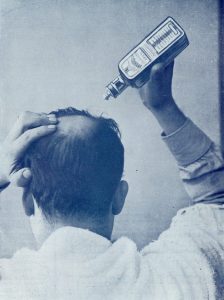Biotin is a B-vitamin, also known as vitamin B7, that is often touted for its potential benefits in promoting healthy hair, skin, and nails. While biotin deficiency can lead to hair loss and other issues, there is limited scientific evidence supporting the use of biotin supplements for treating hair loss in individuals who are not biotin deficient.
When it comes to hair loss, it’s essential to address any underlying causes first. Common factors contributing to hair loss include genetics, hormonal imbalances, certain medical conditions, medication side effects, and nutritional deficiencies. If you are experiencing hair loss, it is recommended to consult with a healthcare professional to determine the root cause and develop a suitable treatment plan.
Regarding blood test results, it is important to be aware that biotin can interfere with certain laboratory tests. Biotin can lead to falsely elevated or decreased results in assays that use biotin-streptavidin technology. Many immunoassays use this technology, including tests for thyroid hormones, hormones like estradiol and testosterone, and various other markers.
When individuals take high doses of biotin supplements (often found in over-the-counter hair, skin, and nail supplements), it can cause interference in these tests. This interference can lead to inaccurate results and potentially misdiagnoses or improper management of certain medical conditions.
If you are taking biotin supplements and need to have blood tests done, it’s essential to inform your healthcare provider about your biotin supplementation. They may recommend temporarily discontinuing the biotin supplements before the blood tests to ensure accurate results.
Always consult with a healthcare professional before starting any new supplements, including biotin, especially if you have any pre-existing medical conditions or are taking other medications. They can provide personalized advice based on your specific health needs and guide you on appropriate supplement dosages, if necessary.



